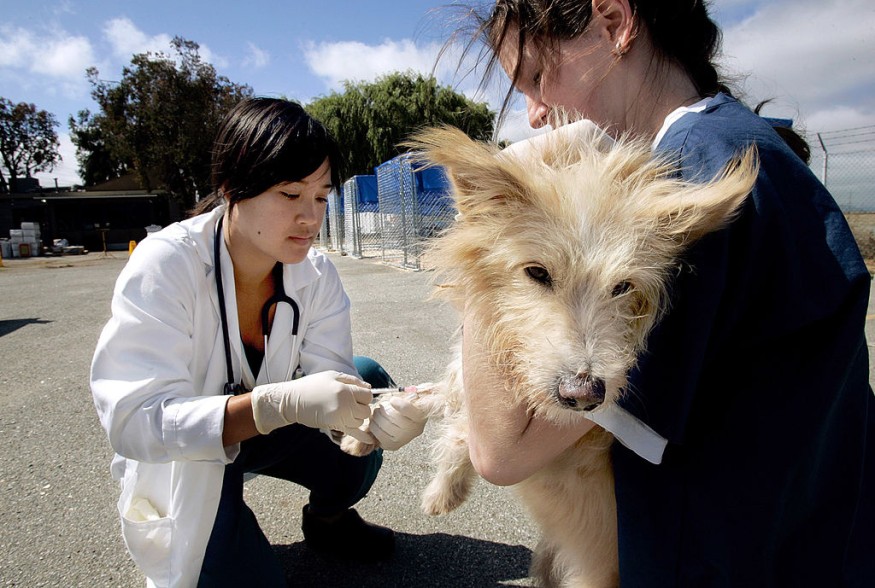According to the latest analysis done by experts around the globe, puppies eating contaminated fish are hampering measures to eliminate a deadly parasite illness in today's generation.
The said deadly parasite is caused by guinea worm, wherein the guinea worm illness is often obtained by consuming groundwater contaminated with parasitic disease.
The Guinea Worm Disease

The worms can expand and develop inside the body of its host for about 10 months up to the maximum of 14 months until emerging as a one-meter-long mature worm, generally from either the legs or arms, to discharge its offspring back into the ocean.
In the territory of Mali, Chad, South Sudan, as well as in Ethiopia, the pathogen leads to damage and suffering in several of the world's poorest communities, affecting every struggling individual in citizens residing in the region.
Prevention initiatives done by the authorities and experts have indeed reduced the number of clinical specimens of Guinea worm from countless thousands in the years of 1980s to only 27 in the previous year, 2020.
Guinea worm might be just the viable human illness to be wiped out, following smallpox.
However, even though elimination appeared to be on the horizon, researchers then discovered that the household dogs are also carrying the infection. Which resulted to yet another problem.
According to intelligence gathering, in 2020, 93% of Guinea parasites found globally were in canines in Chad, in central Africa.
The University of Exeter's discovery, released earlier on December 14, 2021 in Current Biology, uncovered a novel genetic sequence of the dogs devouring fish that contain malaria larvae.
This implies that dogs continue to support the parasite's gestation period, and people can still get the sickness.
The research teams spent a year in many of Chad's most under communities somewhere along Chari Body of water. They used investigative elemental composition monitoring of dog whiskers to show canine meals over the course of the first year, after tracking numerous of canines with GPS trackers.
3-Foot-Long Worm, Human Parasite
Almost all of the fish consumed by the canines which are generally entrails and perhaps even smaller fish, were dumped by mankind when catching fish in the riverbank and its wetlands.
According to Exeter's Environmental and Sustainable development Department and Professor Robbie McDonald who is also part of the research that was conducted explained to the public that, "Dogs are now the primary hurdle to eliminating this horrible living person illness."
"Our findings indicate that aquaculture, as well as the ease with which dogs may consume fish, are directly attributable to the sustainability of Guinea worm in Chad."
"The task today is to remove this virus not just from humans as well as from creatures."
"This is a glaring indication about where a 'One Health' methodology to trying to integrate human, wildlife, and environmental safety is obligated to completely eliminate these crippling infections in humans."
The Carter Center, created by previous US President Jimmy Carter, financed the effort, and operations in Chad was sponsored by WHO and the Chad Ministry of National Healthcare.
© 2026 NatureWorldNews.com All rights reserved. Do not reproduce without permission.





